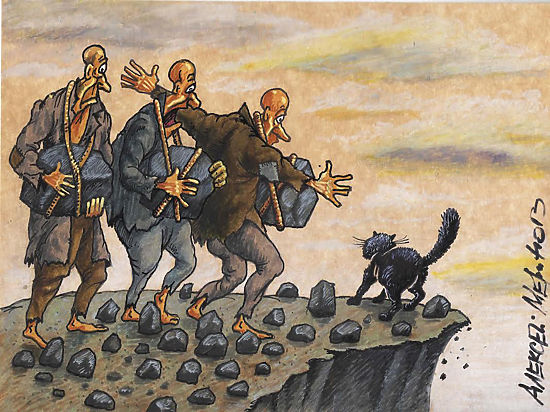
The class with the average income is eroded, and it is detrimental to the economic growth of the United States.
According to the latest IMF survey, in 2000 only about 0.25% of American households went up the stairs with a middle class level to the group with high incomes. At the same time, more than 3% of families with an average income moved in group with low level of income.
This is contrary to trends in the period between 1970 and 2000, when the families with average income, rather, was moving up the ladder of income than Vice versa.
Here is the opinion of the International monetary Fund on this issue:
In combination with stagnation in the real income level, the polarization of segments of the population has a negative impact on the economy, hindering the work of the main engine of U.S. growth and consumption. According to the analysis made in our new study for the period 1998-2013, the US economy lost in terms of the equivalent of more than one year of consumption in connection with the increasing polarization.
This is quite a worrying trend, given that lower-and middle-income spend the greatest part of their income, unlike rich people.
The IMF has identified the middle class (which is often the subject of dispute for determining the level of polarization of income) as those whose real incomes are in the range from 50% to 150% of median income.
The share of families with middle income had dropped to 47% in 2014 from 58% in 1970, while the percentage of households with low income has not changed and is at about 5% of the total national income, shows the IMF report.
Consumers are a powerful driver of the American economy, while consumption at the household level is more than two-thirds of GDP. We have seen a sad example of how a higher level of concentration of wealth affects the creditworthiness of the average borrower.
Not only the rich blame the increased polarization. The number of men who were employed in low-paying positions have jumped over the past four decades, compared with the same increase among women, according to the IMF.








